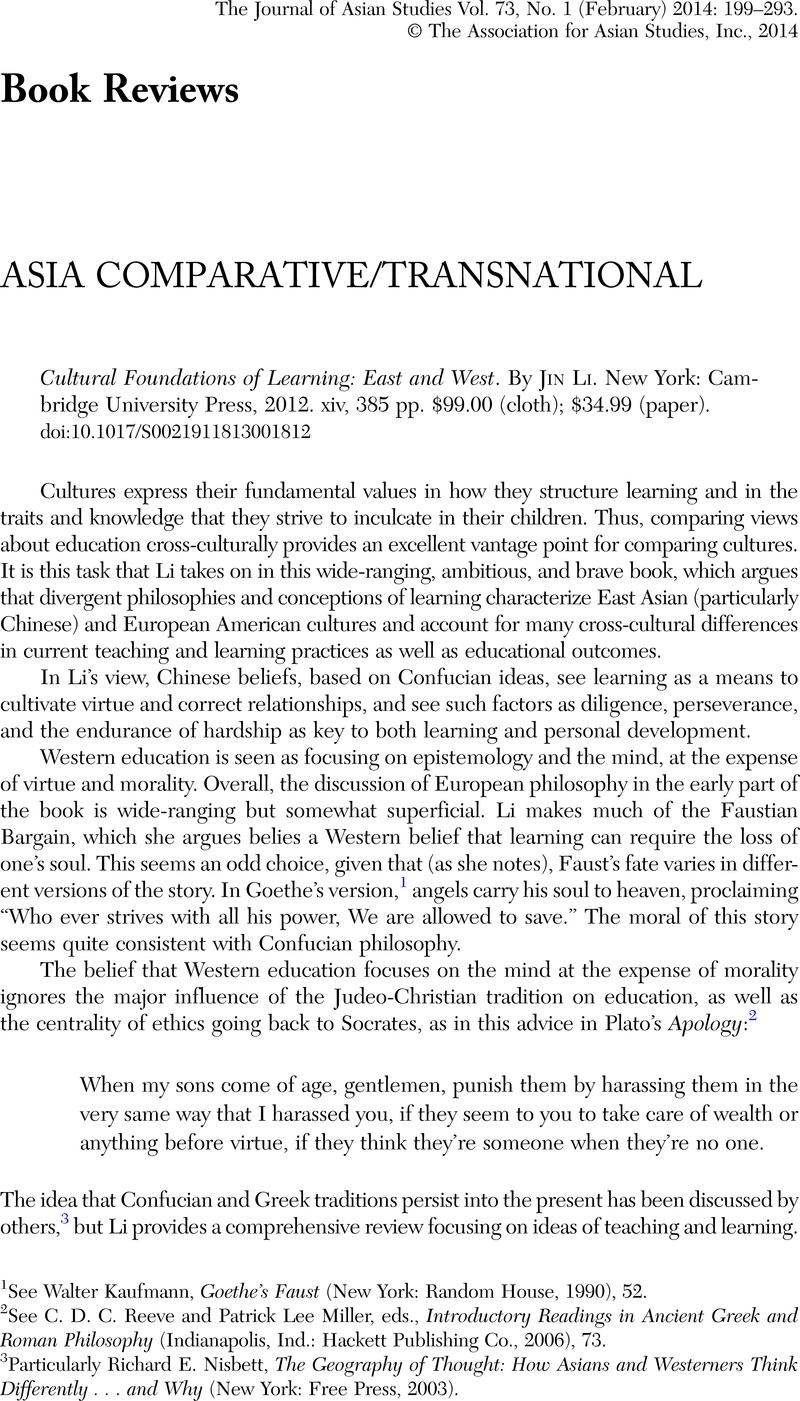No CrossRef data available.
Published online by Cambridge University Press: 27 February 2014

1 See Kaufmann, Walter, Goethe's Faust (New York: Random House, 1990), 52Google Scholar.
2 See Reeve, C. D. C. and Miller, Patrick Lee, eds., Introductory Readings in Ancient Greek and Roman Philosophy (Indianapolis, Ind.: Hackett Publishing Co., 2006), 73Google Scholar.
3 Particularly Nisbett, Richard E., The Geography of Thought: How Asians and Westerners Think Differently . . . and Why (New York: Free Press, 2003)Google Scholar.
4 See Biggs, John, “Learning from the Confucian Heritage: So Size Doesn't Matter?” International Journal of Educational Research 29, no. 8 (1998): 723–38CrossRefGoogle Scholar.
5 See Correa, Christopher A., Perry, Michelle, Sims, Linda M., Miller, Kevin F., and Fang, Ge, “Connected and Culturally Embedded Beliefs: Chinese and U.S. Teachers Talk About How Their Students Best Learn Mathematics,” Teaching and Teacher Education 24, no. 1 (2008): 140–53CrossRefGoogle Scholar.
6 See Flynn, James R., Are We Getting Smarter?: Rising IQ in the Twenty-First Century (Cambridge: Cambridge University Press, 2012)CrossRefGoogle Scholar.